Explore the latest news, stories and perspectives
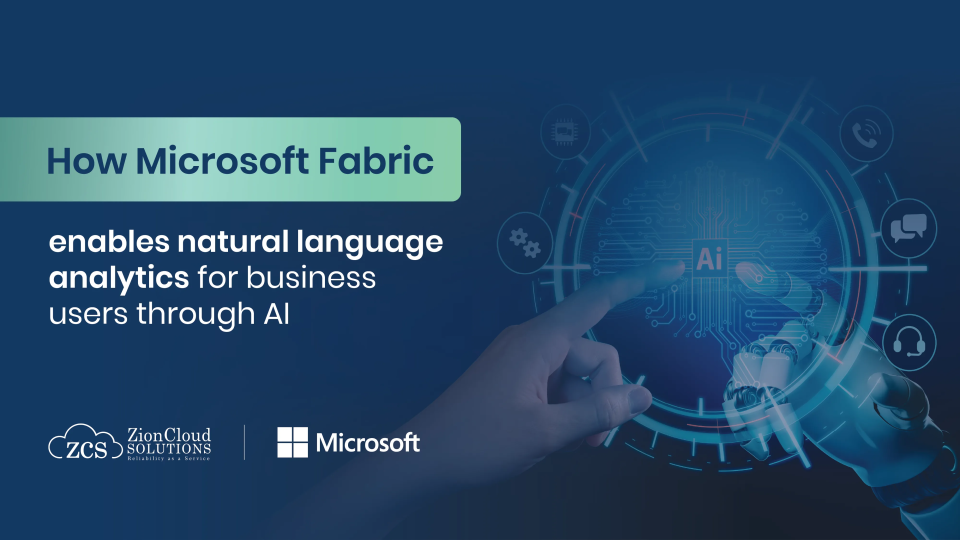
How Microsoft Fabric Enables Natural Language Analytics for Business Users Through AI
That’s the promise Microsoft Fabric brings to modern enterprises. In a world where data volumes are exploding and business decisions must be made faster than ever, traditional dashboards and static reports are no longer enough. Business leaders, marketing managers, finance teams, and operations heads don’t want to wait for technical teams to build queries or reports. They want instant answers. Microsoft Fabric, powered by AI and natural language capabilities, is redefining how organizations inte
Feb 17, 2026Embedding Security into Cloud Decisions: A Modern Leadership Perspective
Feb 05, 2026
AI-First Analytics: How Microsoft Fabric Is Transforming Enterprise Data
Feb 03, 2026
Best Practices for Cost Optimization in Microsoft Azure
Jan 29, 2026
How We Drive Enterprise Workload Transformation Using Microsoft Azure
Jan 29, 2026
Featured News

How Microsoft Fabric Enables Natural Language Analytics for Business Users Through AI
That’s the promise Microsoft Fabric brings to modern enterprises. In a world where data volumes are exploding and business decisions must be made faster than ever, traditional dashboards and static reports are no longer enough. Business leaders, marketing managers, finance teams, and operations heads don’t want to wait for technical teams to build queries or reports. They want instant answers. Microsoft Fabric, powered by AI and natural language capabilities, is redefining how organizations inte
Feb 17, 2026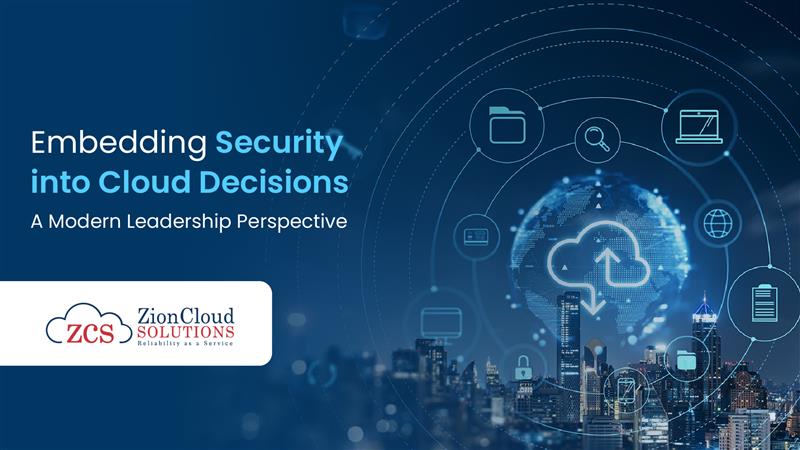
Embedding Security into Cloud Decisions: A Modern Leadership Perspective
Cloud adoption has fundamentally reshaped how organizations build, scale, and operate digital systems. It has enabled speed, flexibility, and innovation at a scale that was once difficult to achieve with traditional infrastructure. But as cloud environments grow in complexity, one reality is becoming increasingly clear — security can no longer be treated as a technical checkpoint that sits at the end of implementation cycles.
Feb 05, 2026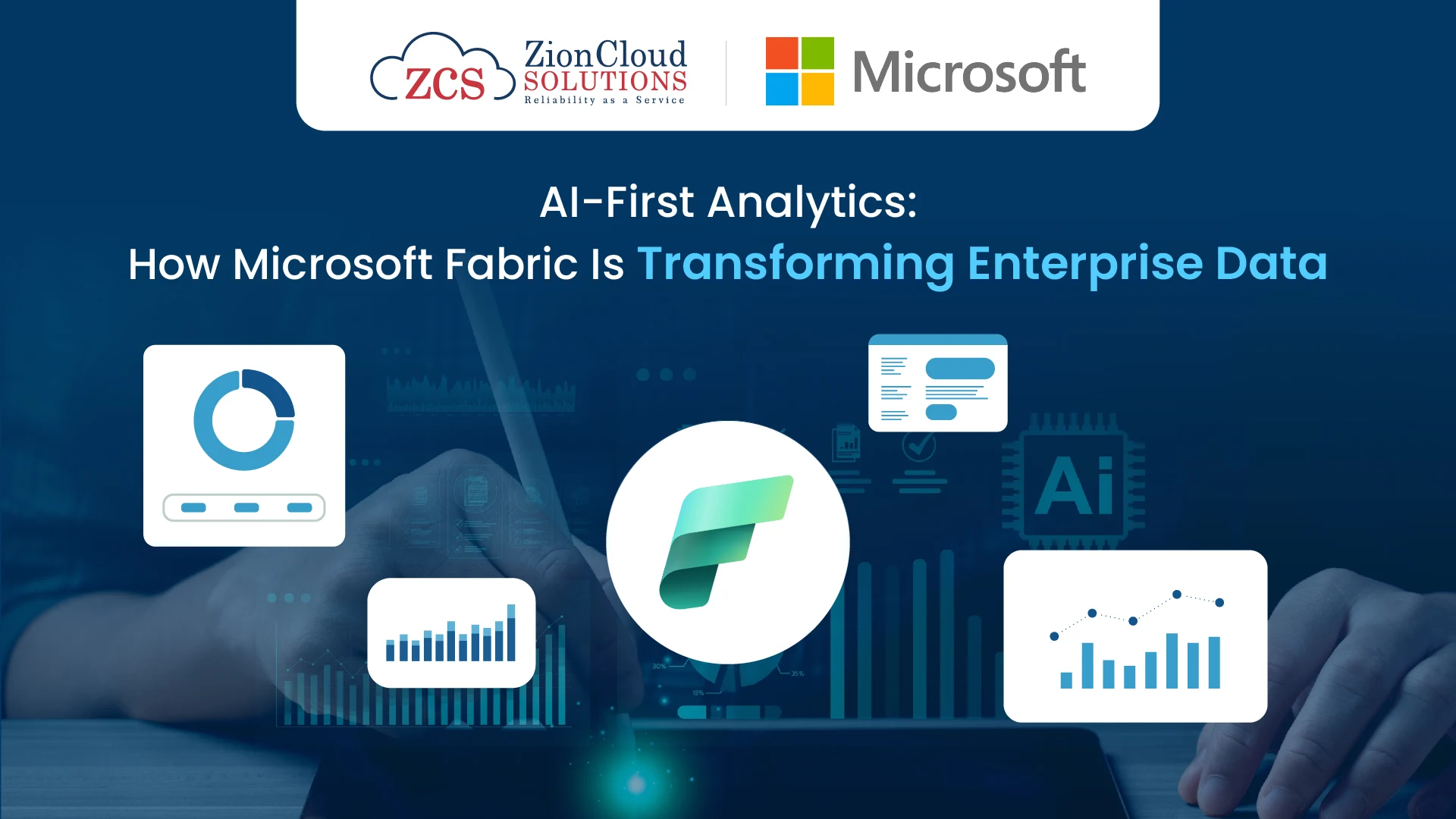
AI-First Analytics: How Microsoft Fabric Is Transforming Enterprise Data
For years, enterprise analytics has been treated like a complex puzzle, data scattered across systems, dashboards multiplying without clarity, and insights locked behind technical barriers. Therefore, leaders wanted answers, but often had to wait for days, weeks, or entire reporting cycles to get them. Today, that model is breaking down. It’s no longer about how much data companies have; it’s about how fast they can act on it. This is where AI-first analytics, powered by Microsoft Fabric, is res
Feb 03, 2026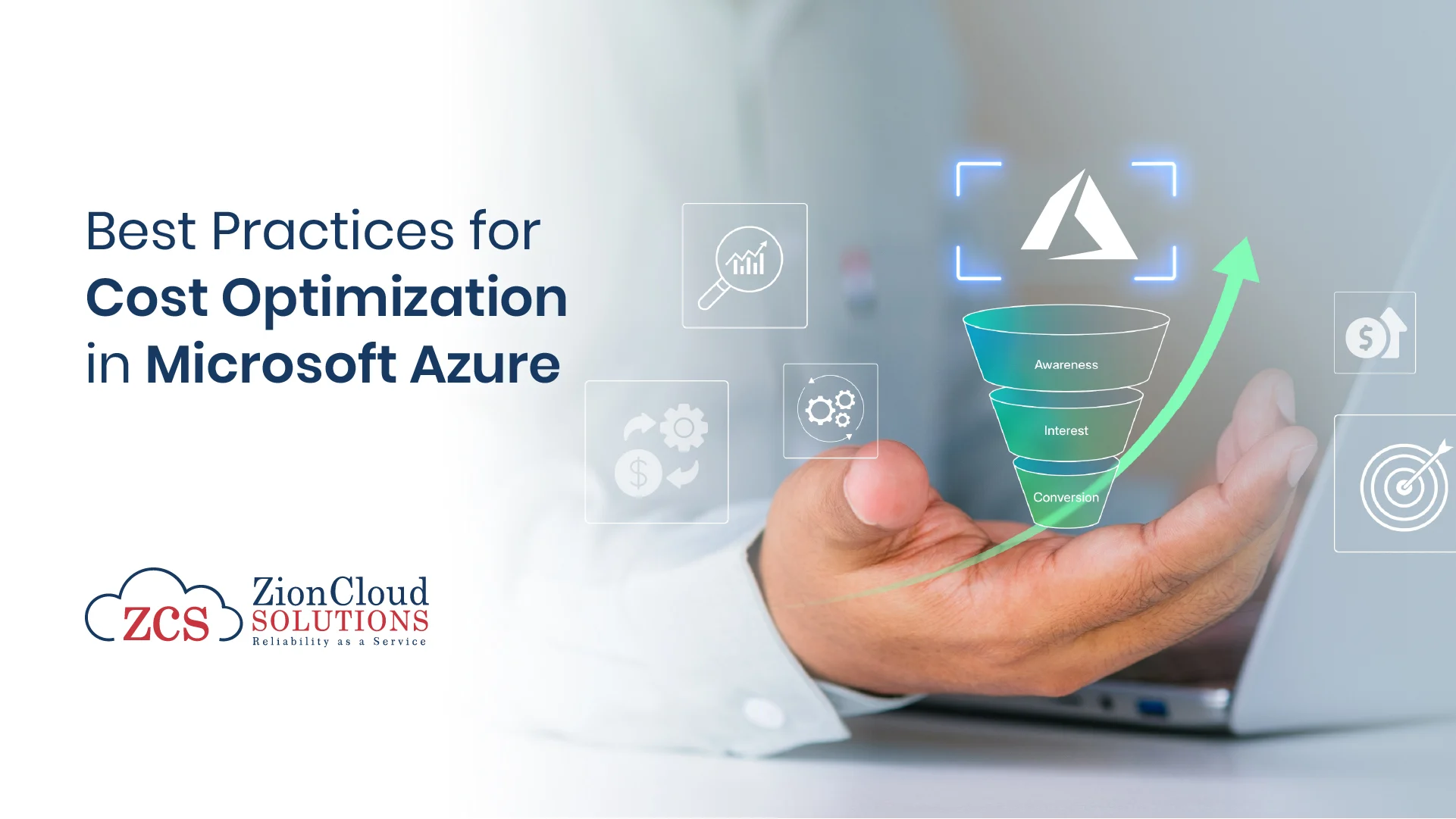
Best Practices for Cost Optimization in Microsoft Azure
By 2025, cloud cost optimization had moved well beyond engineering teams. CFOs, CIOs, and business leaders were actively involved in cloud spend discussions not because cloud was failing, but because cloud costs had become highly visible and directly tied to business performance.
Jan 29, 2026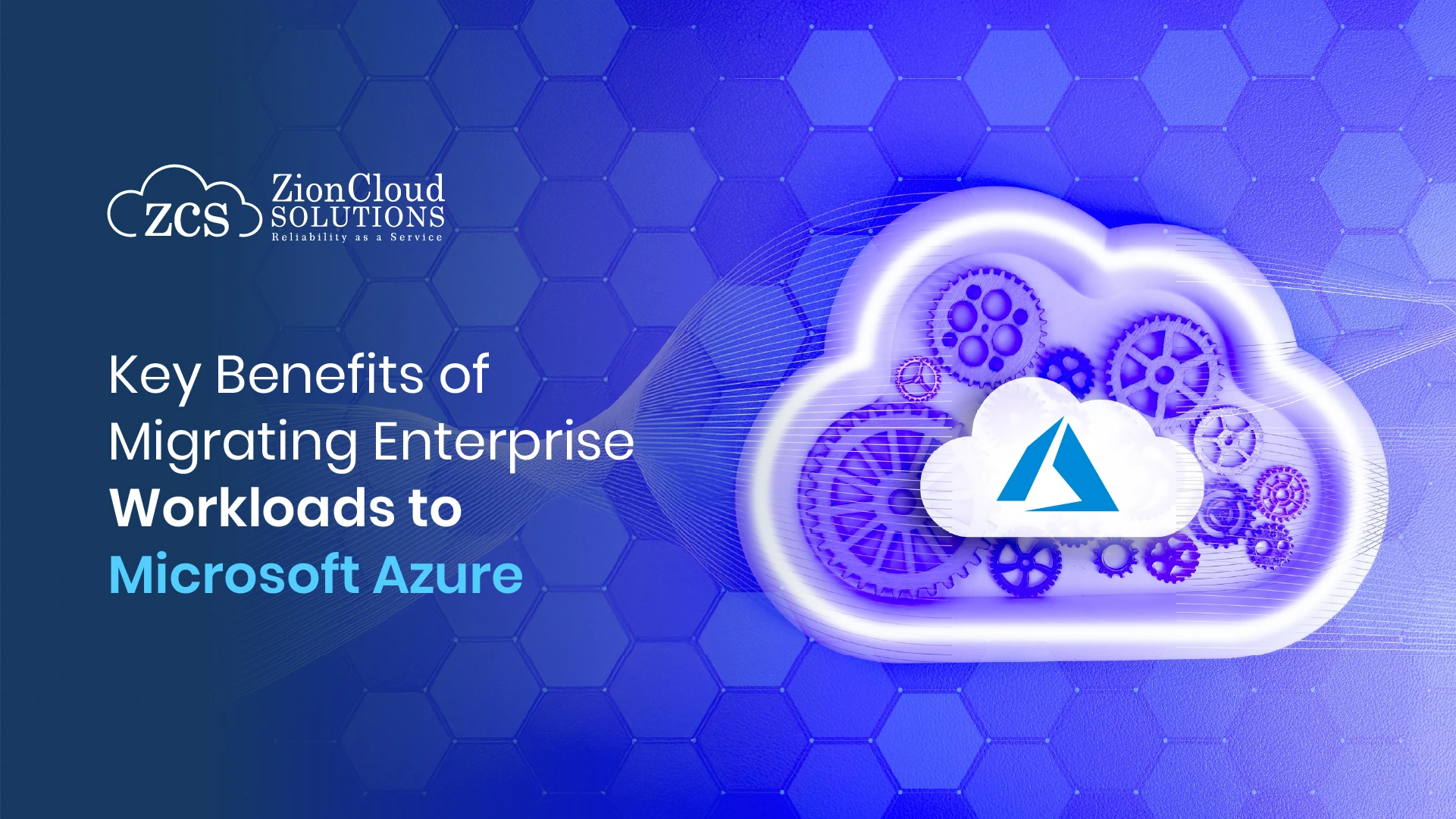
How We Drive Enterprise Workload Transformation Using Microsoft Azure
By 2025, enterprise cloud initiatives had evolved far beyond infrastructure modernization. Cloud programs were now expected to directly support business agility, regulatory confidence, customer experience, and innovation velocity. Simply moving workloads was no longer enough, success was measured by how well cloud adoption changed the way enterprises operated.
Jan 29, 2026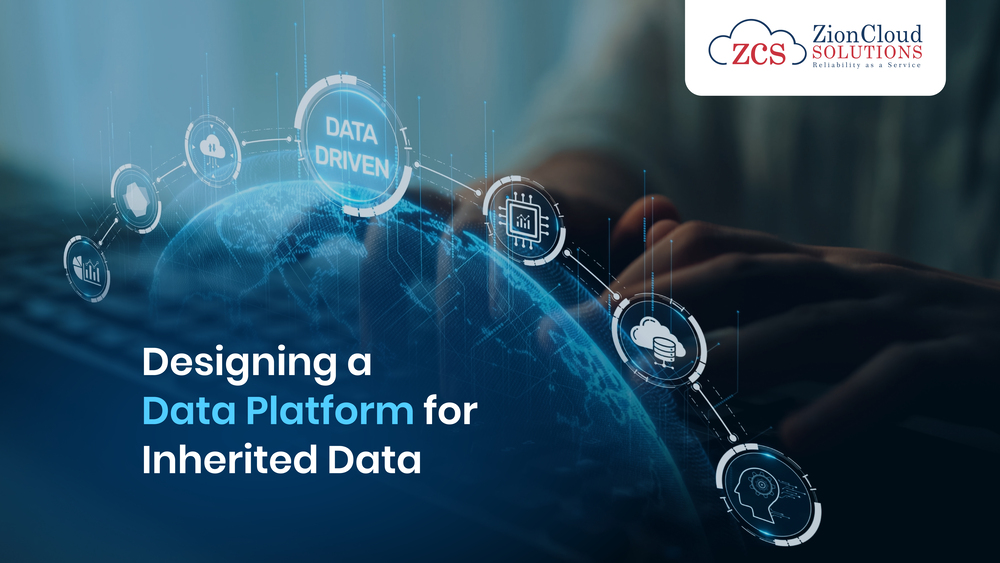
Designing a Data Platform for Inherited Data
Most data platforms are not built on clean, well-documented systems. Data usually comes from systems that were built at different times, by different teams, for different purposes. Over the years, schemas drift, identifiers change, and documentation stops matching what is actually in the data. By the time a central platform is needed, much of the real logic exists only in people’s heads or in downstream reports.
Jan 21, 2026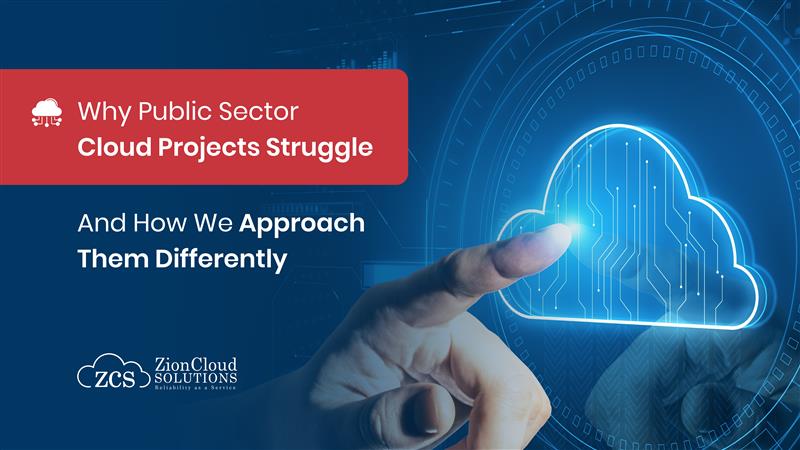
Public Sector Cloud Modernization: Why It’s Challenging and How Zion Cloud Solutions Delivers Better Outcomes
Cloud modernization in the public sector is rarely about adopting the newest technology. More often, it’s about continuity keeping essential services running while systems evolve, regulations change, and public expectations increase.
Jan 13, 2026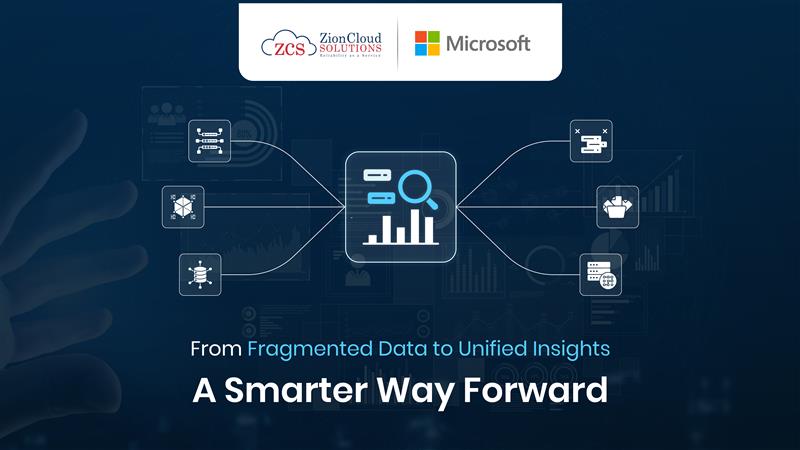
From Fragmented Data to Unified Insights: A Smarter Way Forward
Most organizations today are surrounded by data. Every platform, system, and interaction generate information meant to support better decisions. Yet, despite having access to more data than ever before, many teams struggle to answer simple questions about performance, impact, and direction. The issue is not data availability, but how scattered that data has become.
Jan 13, 2026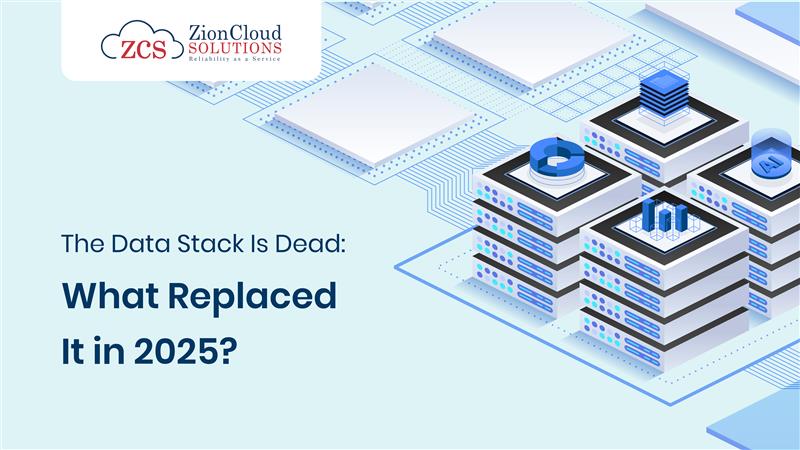
The Modern Data Stack Is Dead. What Replaced It in 2025?
For nearly a decade, the Modern Data Stack shaped how organizations approached analytics and data engineering. Cloud data warehouses, SaaS ingestion tools, transformation frameworks, and BI platforms promised speed, scalability, and flexibility. And for a time, they delivered.
Dec 23, 2025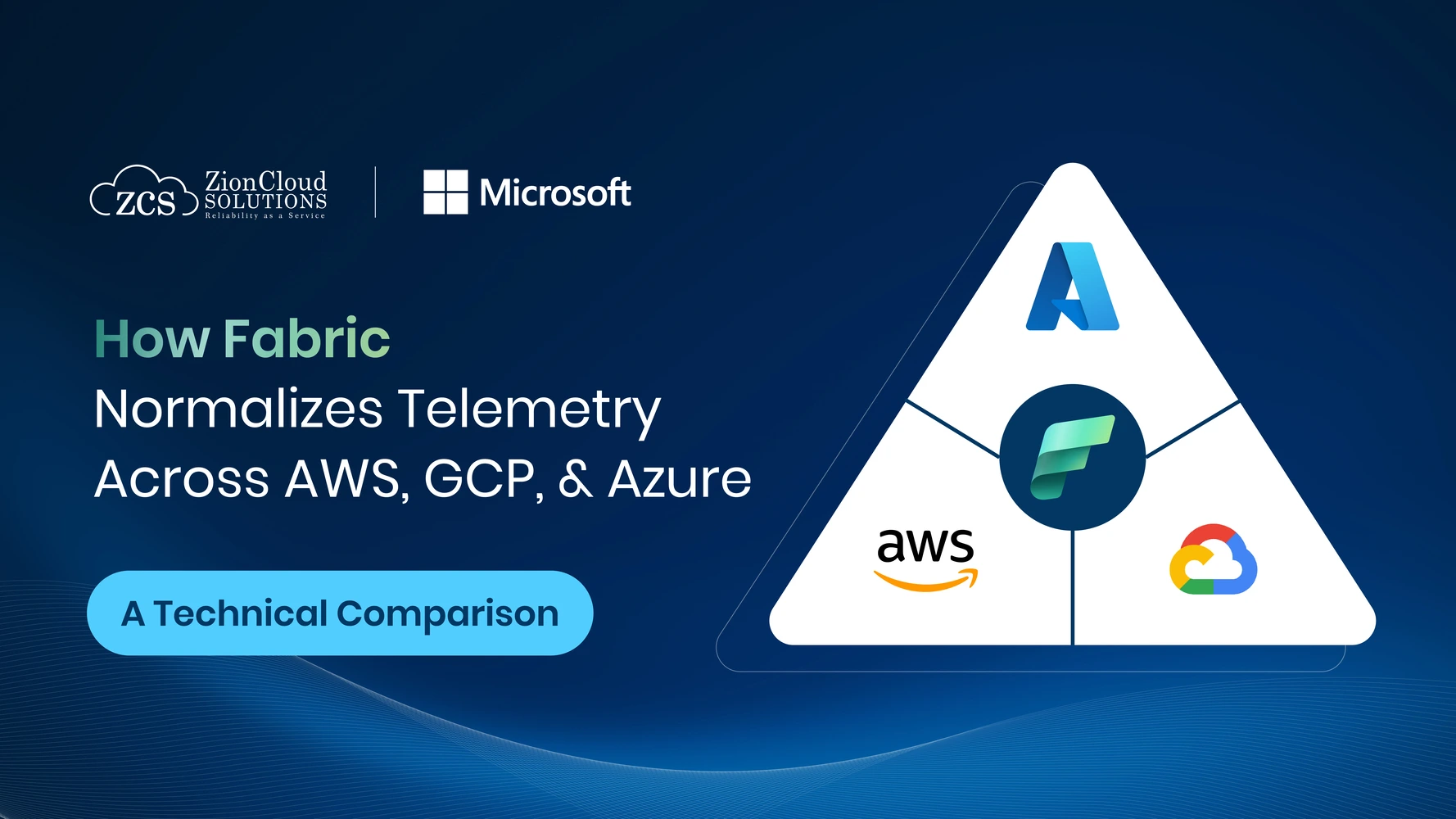
How Fabric Normalizes Telemetry Across AWS, GCP, and Azure: A Technical Comparison
If you’ve ever tried to build a single observability view across AWS, GCP, and Azure, you already know the reality: the clouds speak completely different languages. Each cloud provider exposes telemetry in its own structure, with distinct naming conventions, custom metadata, unique log formats, and incompatible trace models. Trying to correlate these signals manually often feels like assembling a puzzle with mismatched pieces. Engineers spend countless hours just trying to interpret data that sh
Dec 09, 2025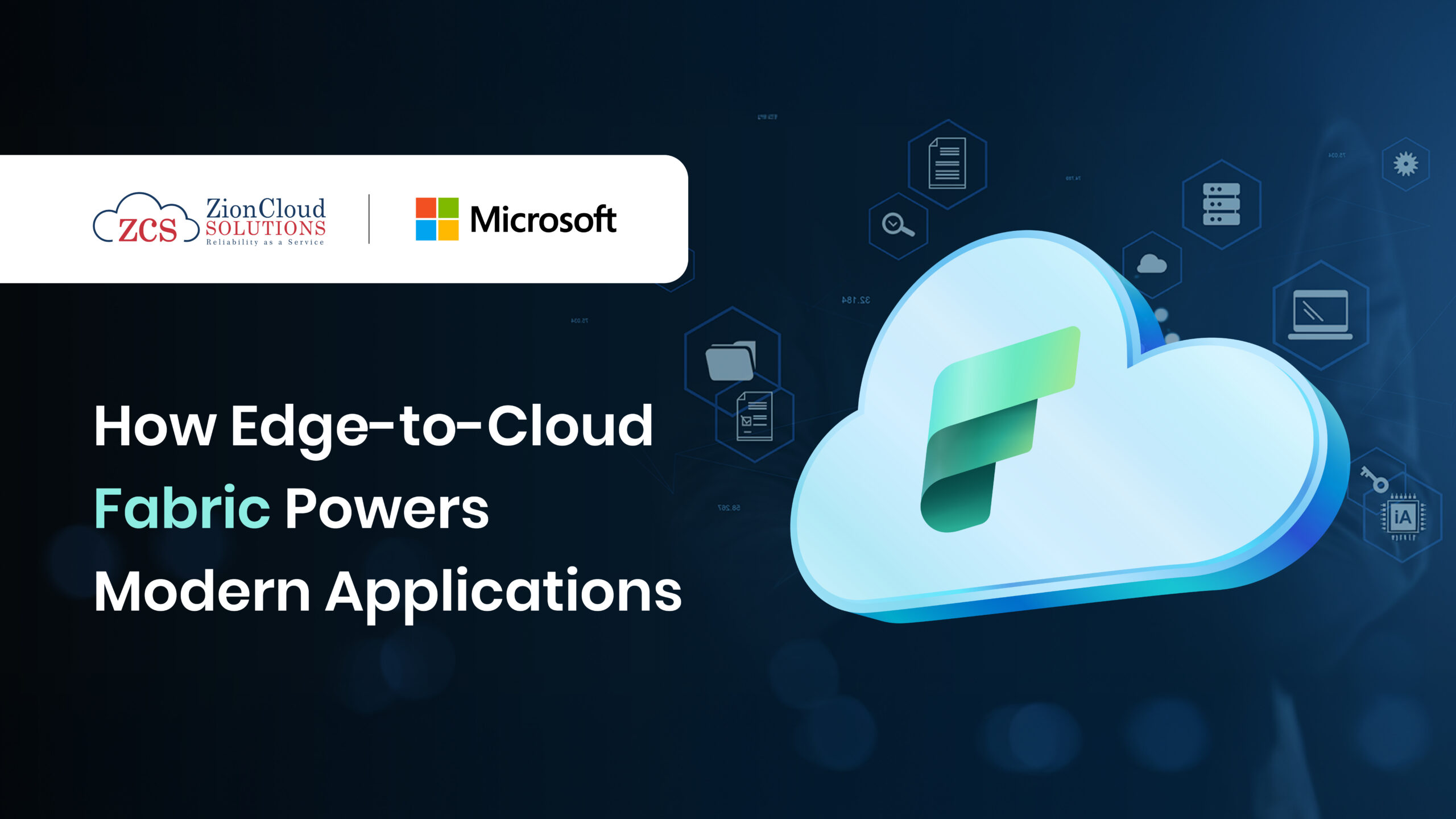
How Edge-to-Cloud Fabric Powers Modern Applications
Modern applications no longer sit quietly inside a single data center or depend entirely on the cloud. They live across smartphones, sensors, remote branches, multi-cloud platforms, and everything in between. Users expect instant responses, uninterrupted experiences, and intelligent features, no matter where they are or what device they use.
Dec 02, 2025
OneLake Intelligence: The New Operating System for Enterprise Data
Every organization today is drowning in storage accounts, warehouses, lakes, pipelines, and layers of integration work that nobody fully controls anymore. Data lives everywhere but never where you need it. Teams spend more time fixing architecture than using it. Leaders want real-time insight, but the underlying systems behave like a patchwork of disconnected parts.
Nov 25, 2025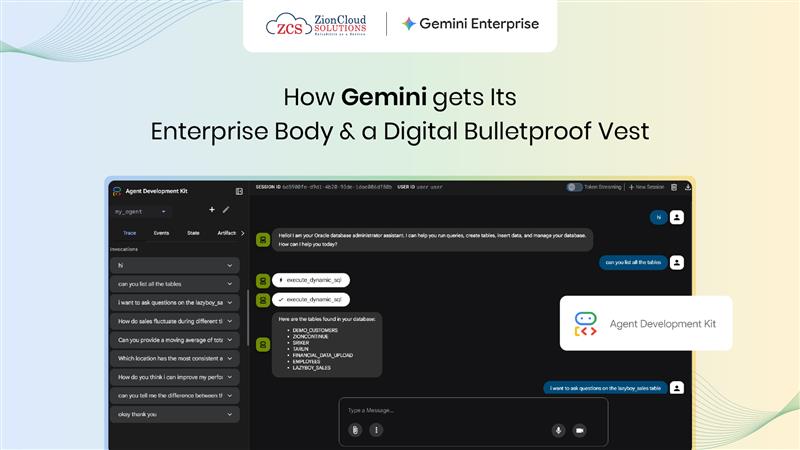
How Gemini Gets Its Enterprise Body and a Digital Bulletproof Vest
Stop the presses. We need to talk about the AI workflow you’re building right now. If you’re like most of us, you’ve wrestled with the gap between brilliant LLM insight and dusty enterprise reality. You have the Gemini model, the brain, the core intelligence ready to revolutionize your business. But getting it to securely and reliably execute tasks against your most critical data has been a nightmare of custom boilerplate and brittle connection code.
Nov 25, 2025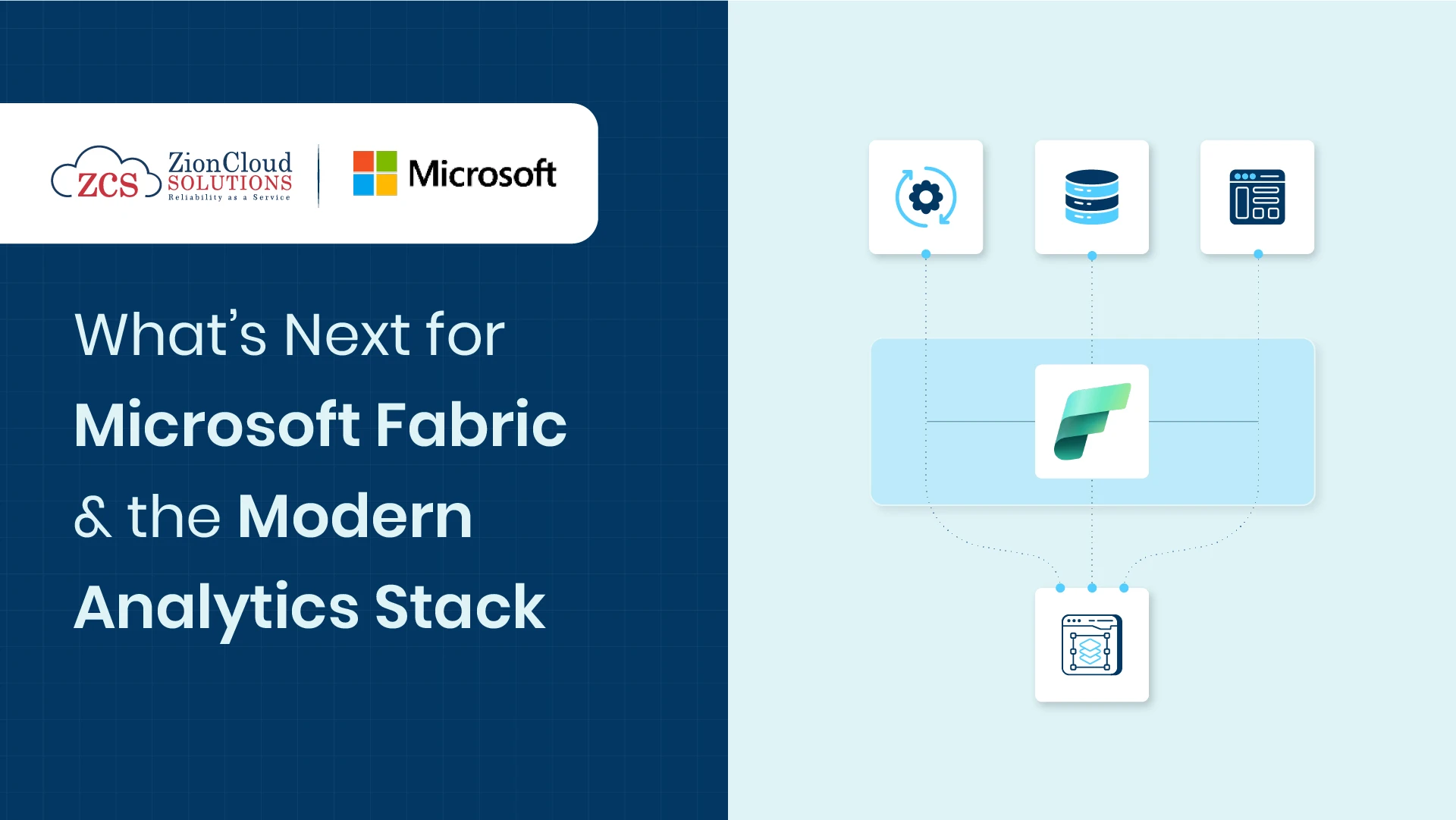
What’s Next for Microsoft Fabric and the Modern Analytics Stack
Businesses today are drowning in data, yet insights often arrive too late to influence decisions. The modern analytics stack, once a collection of disconnected tools, is evolving fast, and Microsoft Fabric is at the forefront of this transformation. It’s not just another platform it’s a reimagining of how organizations think about, process, and leverage data.
Nov 12, 2025
Unlocking Embedded Analytics: Microsoft Fabric for Business Users & Developers
What if you could see the story behind every number not in a separate dashboard, but right where you make decisions? That’s the promise of embedded analytics, and Microsoft Fabric is making it real.
Nov 03, 2025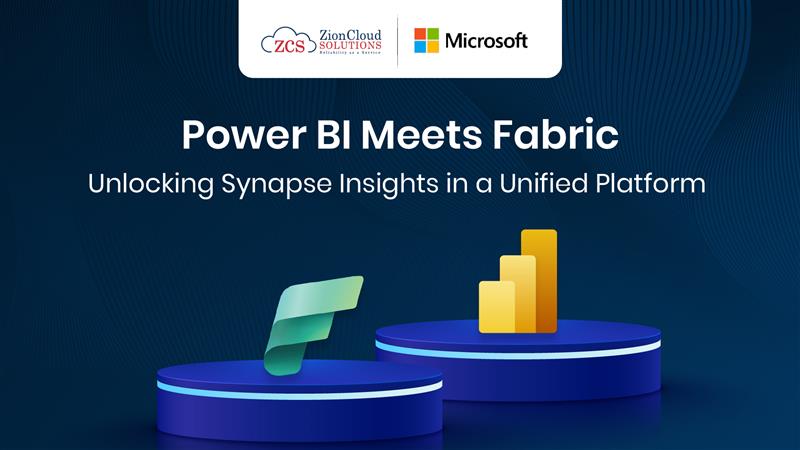
Power BI Meets Fabric: Unlocking Synapse Insights in a Unified Platform
Data doesn’t live in silos anymore, so why should your analytics? For years, Power BI and Azure Synapse worked side by side to deliver insights. But as businesses chase faster, real-time intelligence, maintaining two separate systems created friction; duplicate data, long refresh times, and inconsistent metrics.
Oct 27, 2025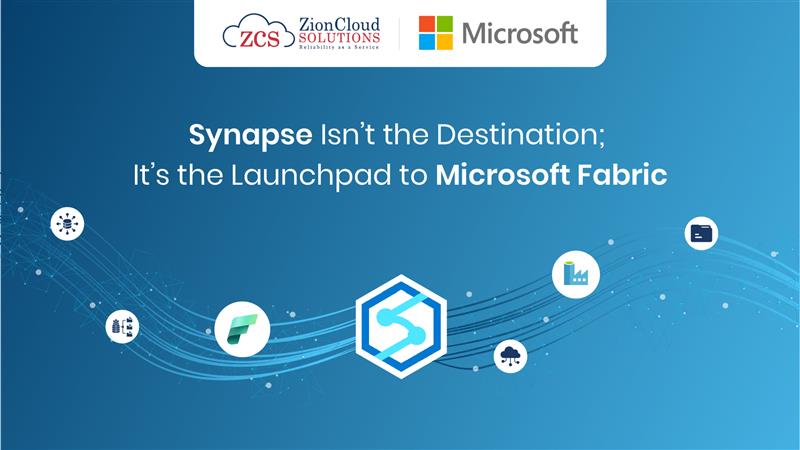
Synapse Isn’t the Destination; It’s the Launchpad to Microsoft Fabric
As businesses scale their data ambitions, Azure Synapse has served as a powerful foundation helping organizations harness analytics, build data warehouses, and uncover insights at scale. But the reality is, the data landscape has evolved. What once powered analytics now needs to power intelligence.
Oct 22, 2025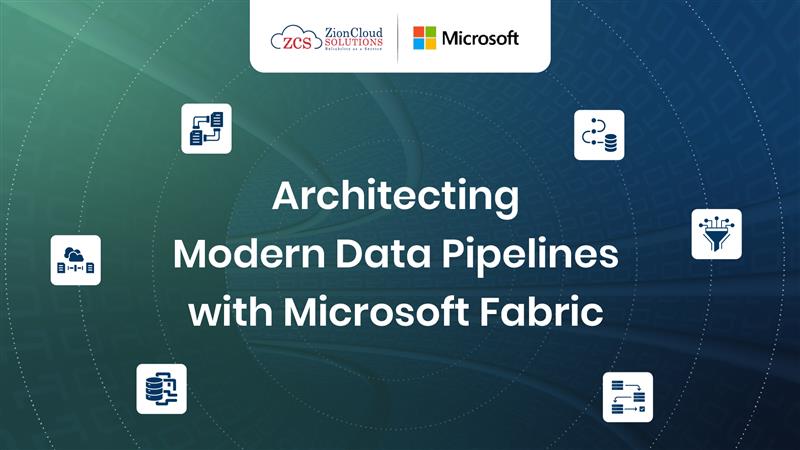
Architecting Modern Data Pipelines with Microsoft Fabric
Data is growing faster than ever, and enterprises are struggling to keep up. Microsoft Fabric offers a unified way to turn that challenge into opportunity. Besides, enterprises are moving away from fragmented systems and towards a unified data platform where ingestion, storage, governance, and analytics come together seamlessly.
Oct 13, 2025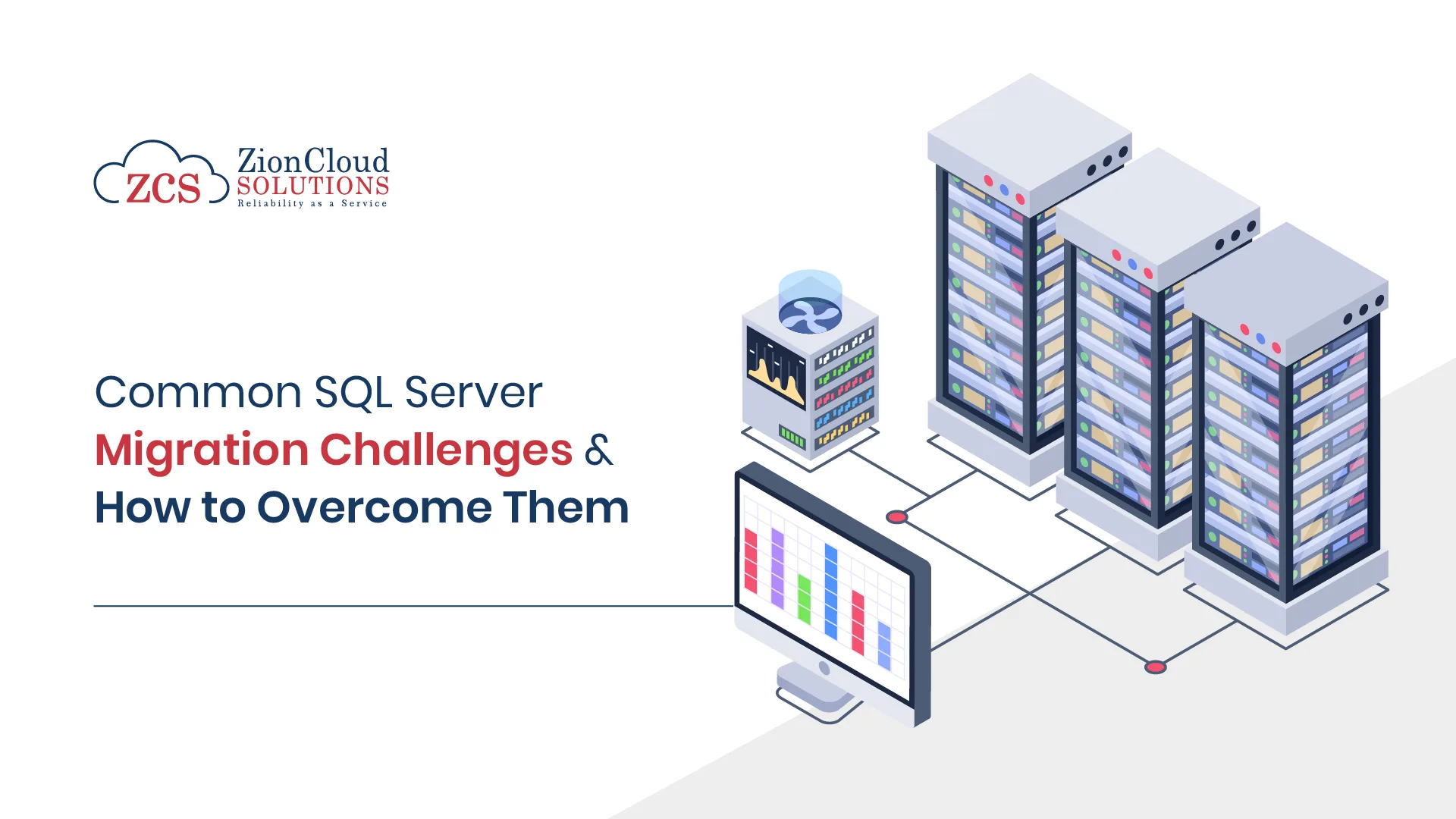
Common SQL Server Migration Challenges and How to Overcome Them
We’ve seen migrations planned with perfect timelines and modern tooling still struggle once real workloads, legacy dependencies, and business expectations enter the picture. Whether the move is from on-premises to cloud, legacy SQL Server versions to newer releases, or between hosting environments, migrations introduce a unique mix of technical and operational risks.
Sep 25, 2025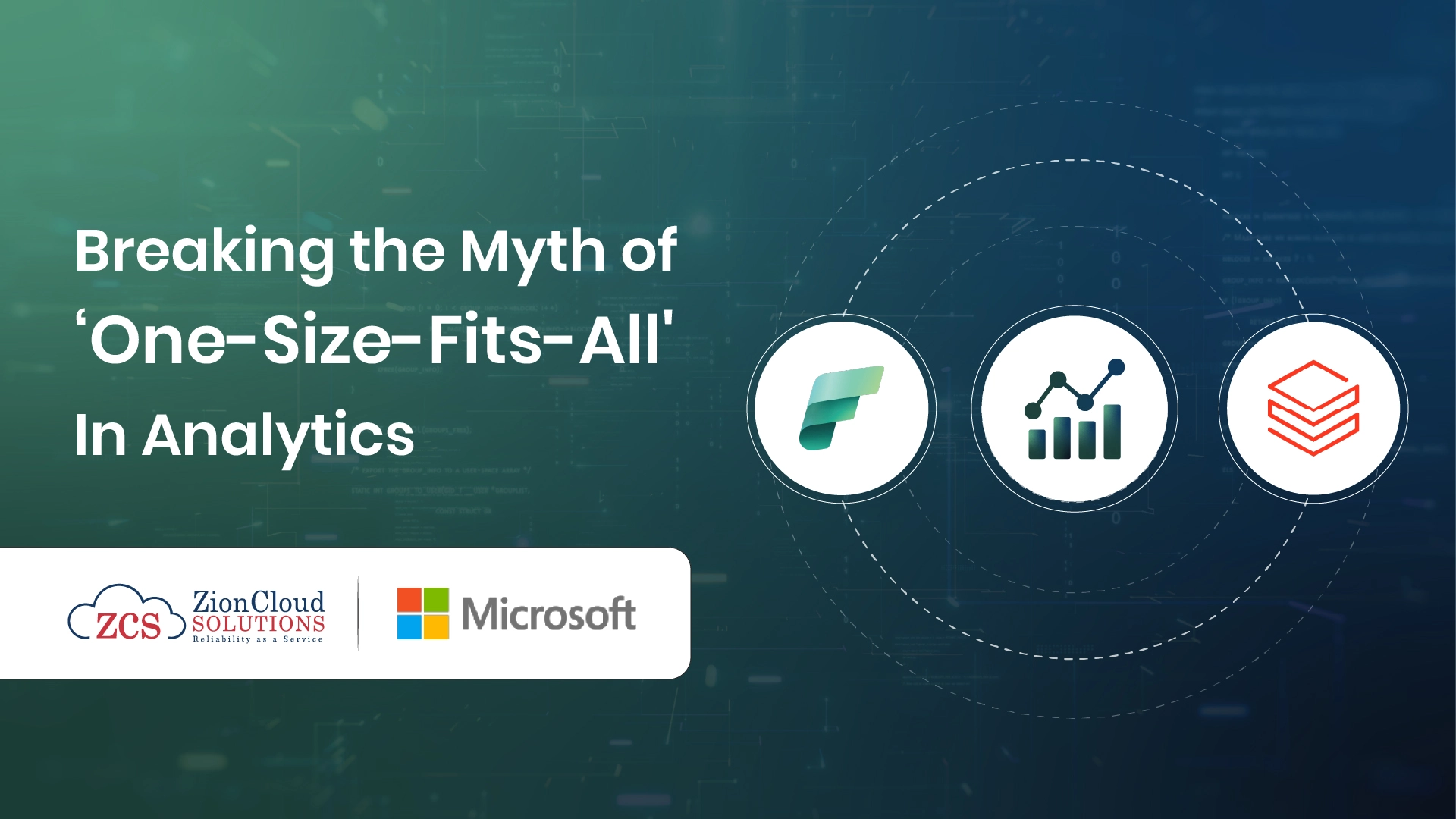
Breaking the Myth of ‘One-Size-Fits-All’ In Analytics
For years, organizations have been tempted by the idea of a single, universal analytics platform — one system that could handle every dataset, every report, every use case. The promise was simplicity: one vendor, one workflow, one place to manage it all. It’s an appealing vision, especially for businesses under pressure to control costs and reduce complexity. But the reality is that data has outgrown the idea of a one-size-fits-all solution. Today’s data is too diverse, too fast, and too busin
Sep 22, 2025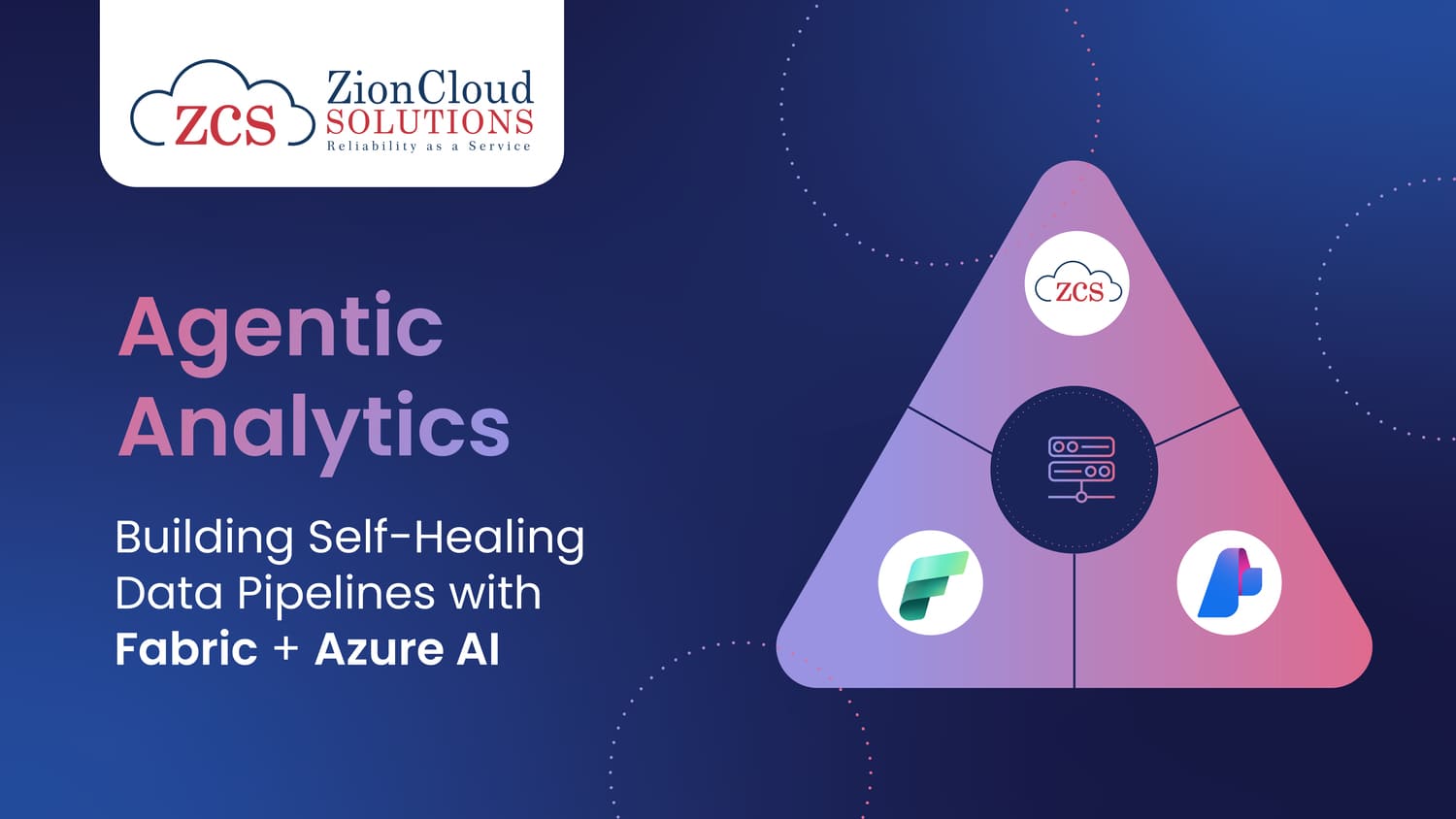
Agentic Analytics: Building Self-Healing Data Pipelines with Fabric + Azure AI
Data pipelines are the backbone of modern analytics. Yet, they’re often fragile: once broken source file, schema drift, or late-arriving dataset can cause downstream dashboards to fail. This leads to firefighting instead of insights.
Sep 15, 2025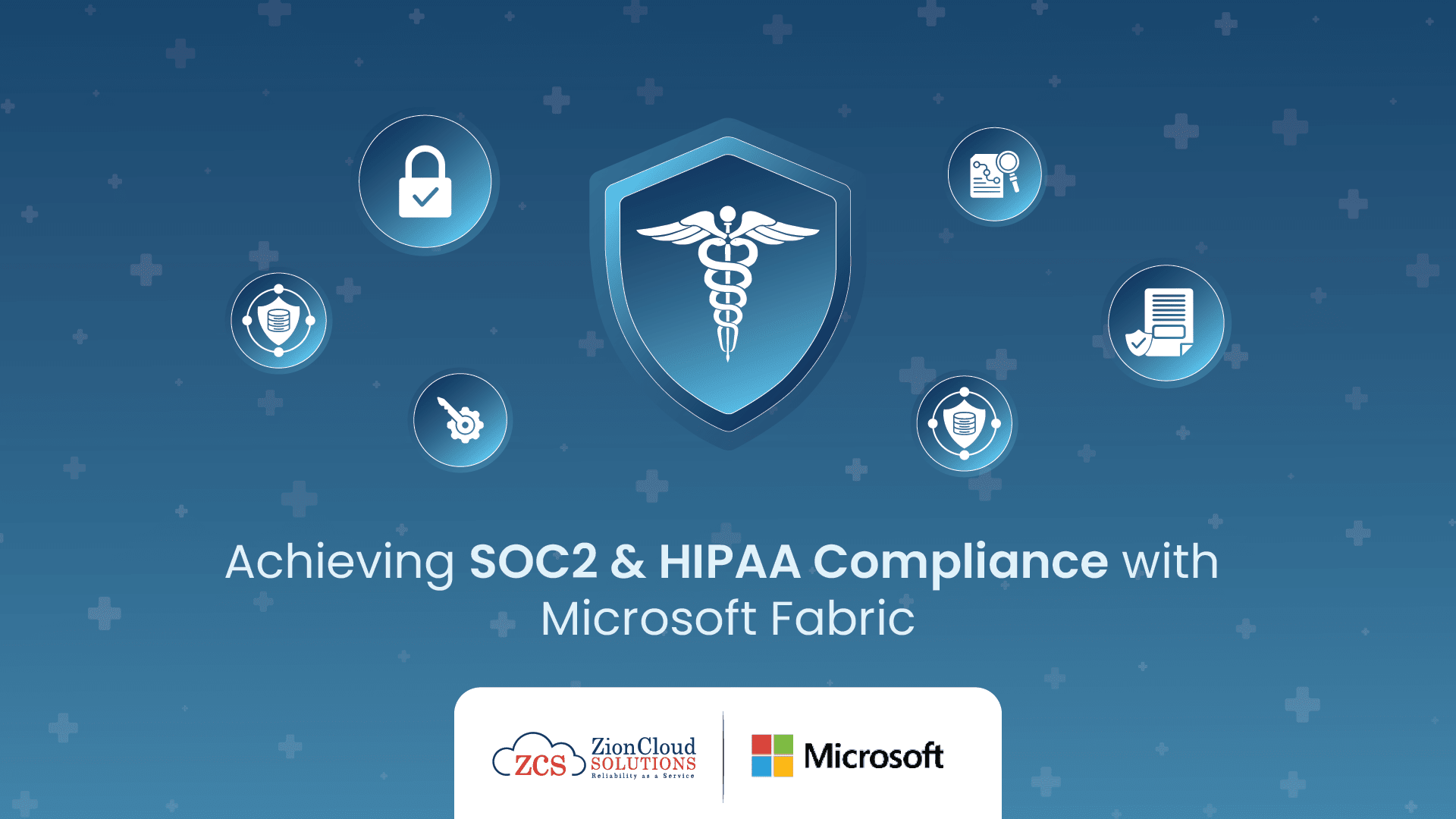
Achieving SOC2 and HIPAA Compliance with Microsoft Fabric
Ensuring SOC2 and HIPAA compliance stands as one of the most critical priorities for organizations managing sensitive data. At Zion Cloud Solutions, we see businesses struggling with solutions that need to deliver robust security, comprehensive governance, and audit readiness while streamlining compliance workflows. The challenge? Traditional compliance approaches are often complex, resource-intensive, and costly. That's why we champion Microsoft Fabric — a unified data platform engineered to
Sep 08, 2025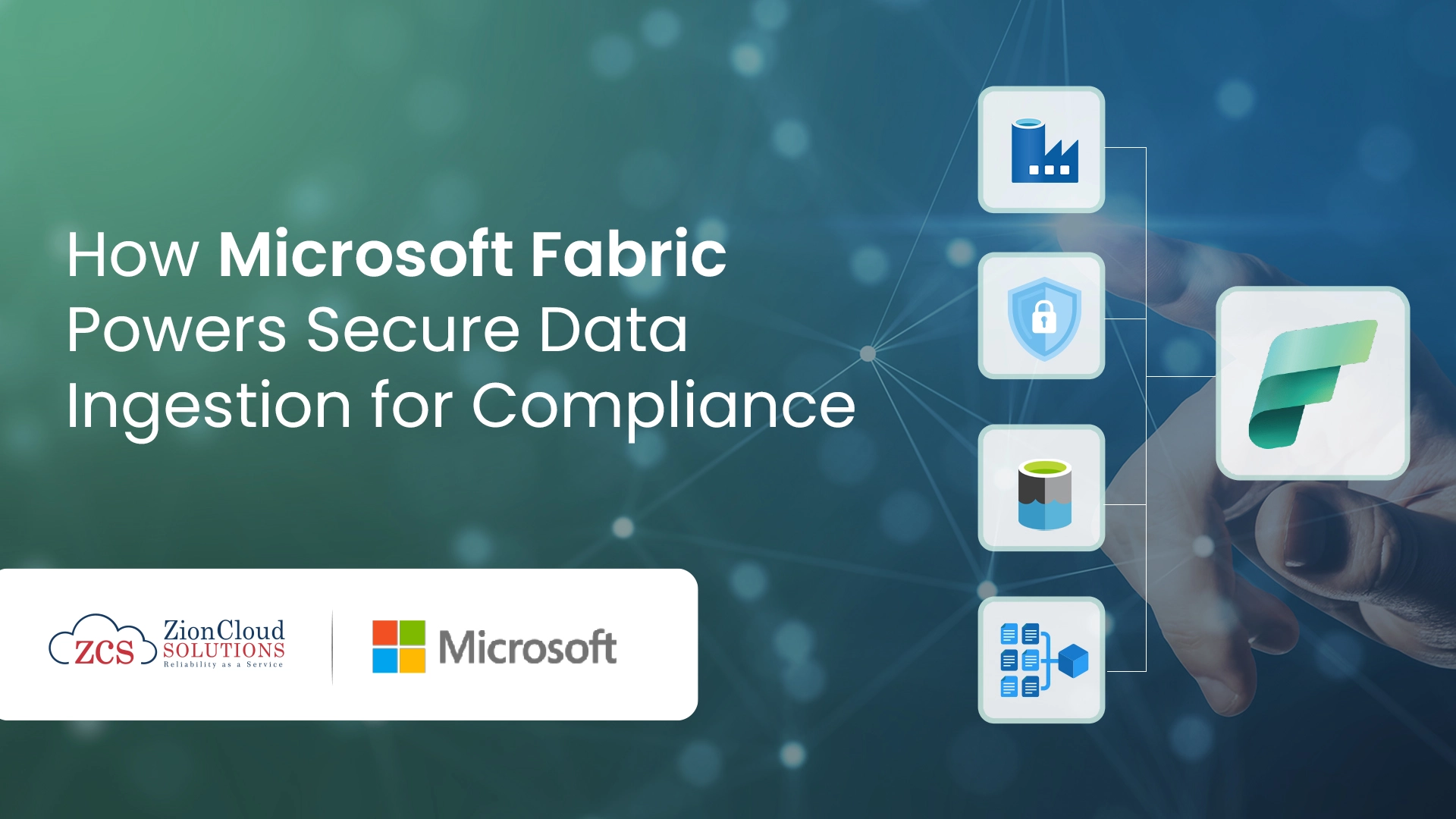
Microsoft Fabric – Secure Data Ingestion and Compliance-Ready Pipelines
Organizations today are tasked with managing sensitive, high-volume data across research, healthcare, finance, and government domains. In these environments, building a secure, auditable, and compliance-ready pipeline isn’t optional—it’s foundational.
Aug 25, 2025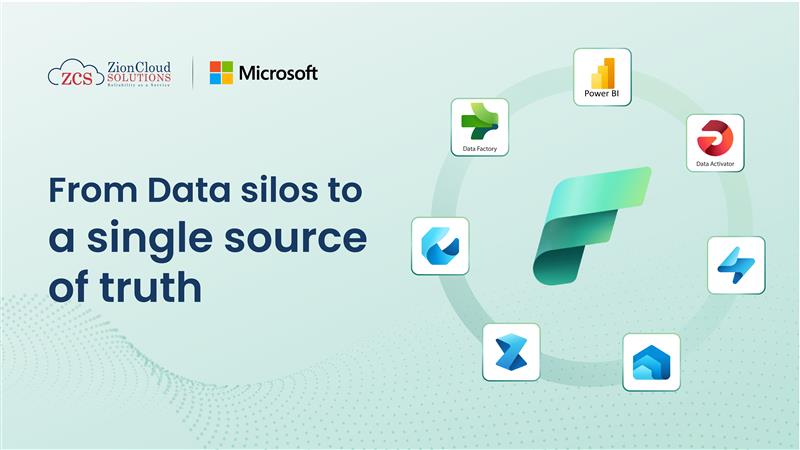
Data Chaos to Compliance: Microsoft Fabric for Government Agencies
Imagine a future where every decision is powered by a single, trusted source of truth. No more data silos. No more compliance headaches. Microsoft Fabric brings that vision to life, uniting storage, analytics, governance, and visualization into one secure, cloud-based platform. Built on SOC 2–compliant Azure, it’s designed for organizations that want to modernize confidently, move faster, and make smarter decisions.
Aug 18, 2025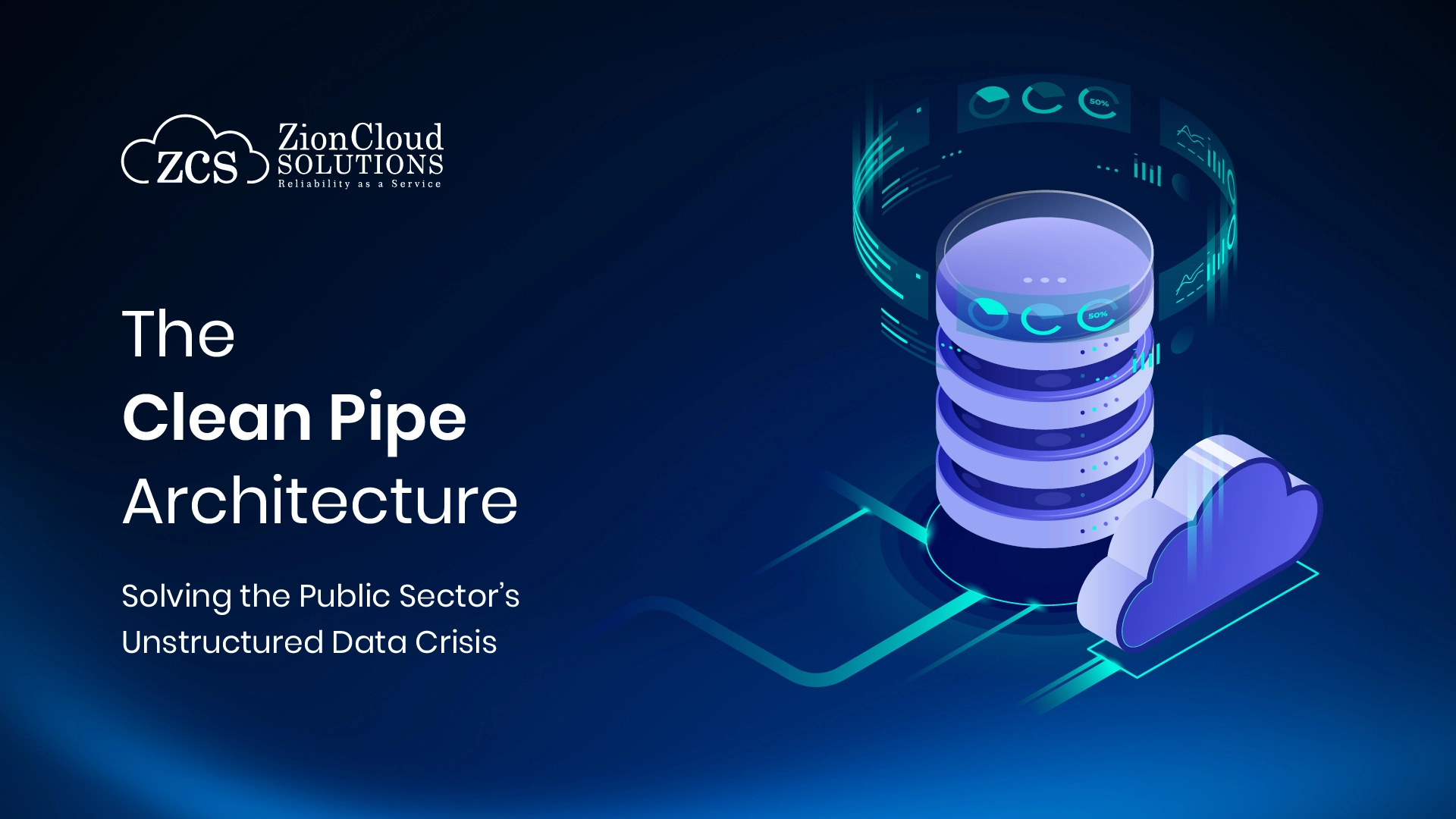
The “Clean Pipe” Architecture: Solving the Public Sector’s Unstructured Data Crisis
The Public Sector Constraint: It’s Not Just "Big Data," It’s "Messy Data" In the commercial sector, modern data stacks often assume a baseline of structured, clean JSON or SQL inputs. In the public sector, specifically in our work with state agencies the reality is different. The primary constraint isn't volume; it is variety and veracity. When architecting the Intelligent Data Platform (IDP), we faced a "Legacy Lock" consistin
Aug 15, 2025
Fulfilling the Mission: Mastering NIST Compliance for Government Workloads on AWS
An agency’s mission-critical application is ready for launch. A prime contractor is prepared to bid on a multi-year federal program. A state-level department is poised to modernize its citizen services. These initiatives all promise progress, but they share a common, formidable gate: proving compliance with federal security standards.
Jul 10, 2025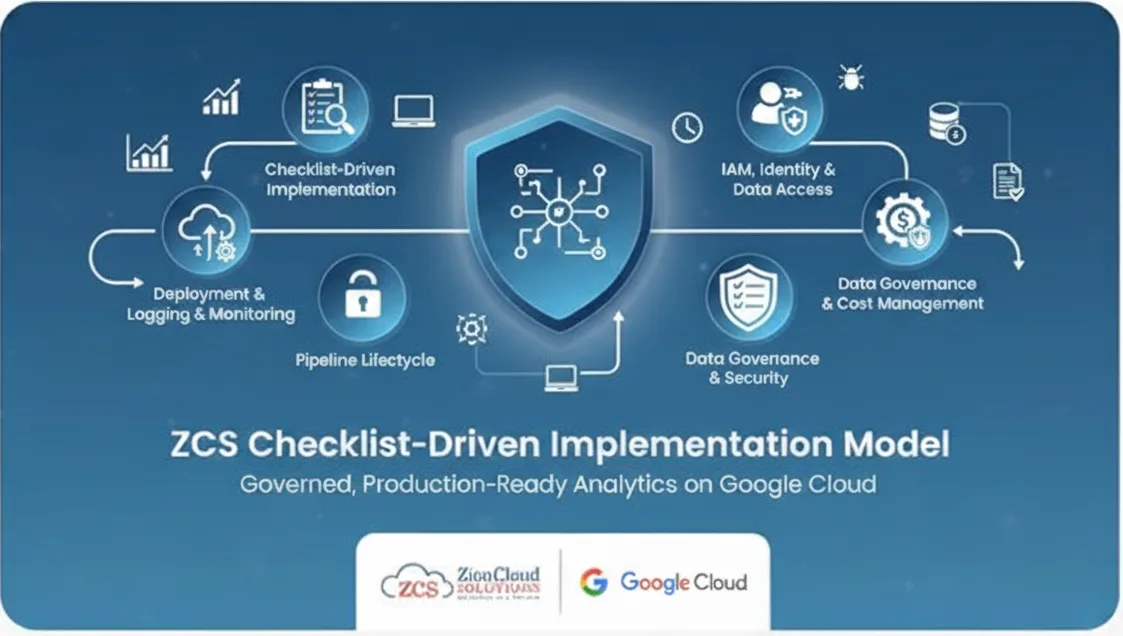
ZCS Checklist-Driven Implementation Model
Most data projects fail not because of technology, but because the implementation is inconsistent: one team sets up IAM by hand, another forgets to enable logging, a third never documents how the pipeline actually runs. Zion Cloud Solutions (ZCS) solves this with a checklist-driven implementation model that standardizes how we build and operate data platforms on Google Cloud.
May 08, 2025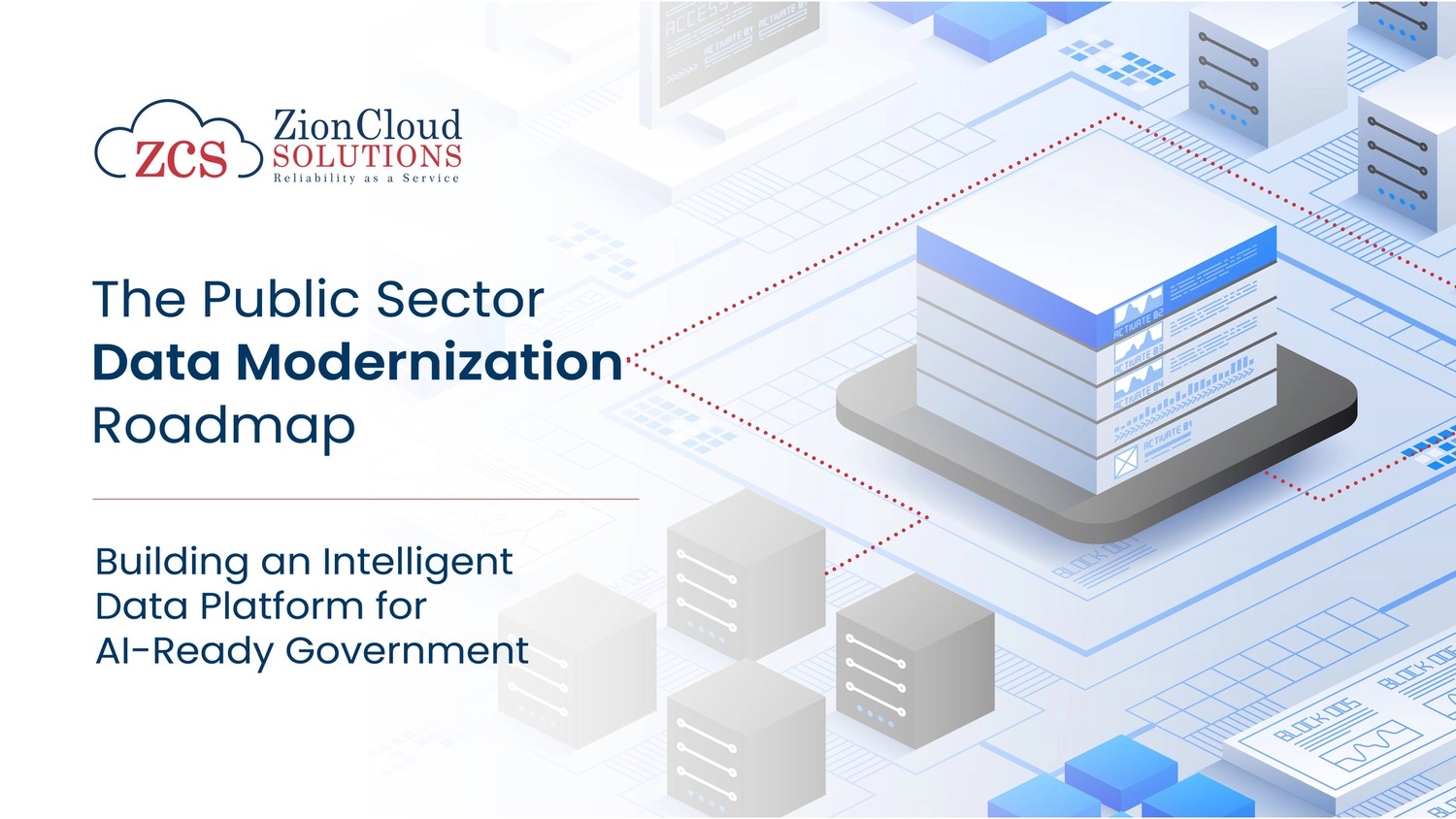
The Public Sector Data Modernization Roadmap: Building an Intelligent Data Platform for AI-Ready Government
In the public sector, "Digital Transformation" often stops at digitization—turning paper forms into PDFs. But for Illinois Public Sector Agencies, true modernization isn't just about scanning documents; it's about unlocking the intelligence trapped inside legacy silos. Agencies today face a "Legacy Lock": data is fragmented across SharePoint libraries, mainframes (DB2/SAP), and SaaS islands (Dynamics 365, Jira). This fragmentation prevents the real-time
Apr 18, 2025
Accelerating Modernization with CloudScale on AWS: Beyond Migration to True Transformation
Modernization in the public and private sectors isn't merely a trend—it's an imperative for agility, resilience, and innovation. Yet, the journey is often perceived as a labyrinth of complex choices, fragmented tooling, and escalating costs. At Zion Cloud Solutions, we recognized these challenges early on. That's why we engineered CloudScale: not just a suite of services, but a holistic modernization accelerator.
Apr 04, 2025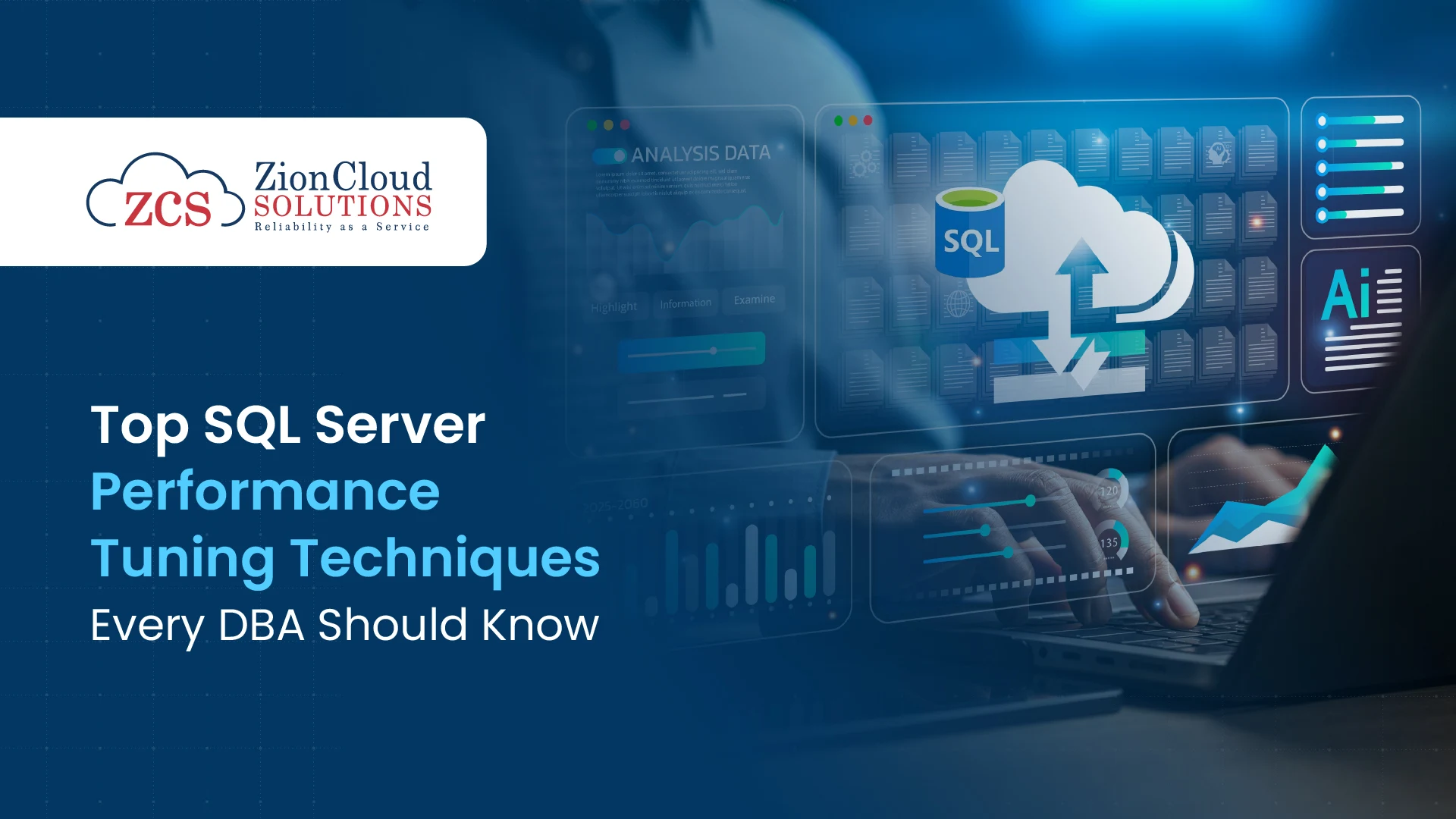
Top SQL Server Performance Tuning Techniques Every DBA Should Know
SQL Server performance problems rarely announce themselves politely. They surface as delayed reports during peak hours, applications timing out without warning, or CPUs spiking at 2 a.m. for no obvious reason. In our experience managing large and mid-sized SQL Server environments, performance tuning is less about quick fixes and more about understanding why SQL Server behaves the way it does under pressure.
Feb 20, 2025
Empowering Government Agencies with Secure AI Solutions: Navigating Data Privacy and Compliance with Zion Cloud Solutions
Government agencies face significant challenges as they adopt Artificial Intelligence (AI) to improve public services, optimize operations, and drive mission success. AI’s ability to analyze large datasets, predict trends, and streamline decision-making holds tremendous potential, but its deployment in government settings raises complex issues around data privacy, compliance, and legacy infrastructure compatibility.
Nov 12, 2024
Optimizing Cloud Spending: Uncovering Hidden Costs and the Critical Role of FinOps
As cloud adoption accelerates, organizations benefit from scalability, flexibility, and innovation. However, these advantages come with hidden costs that can erode profitability. Worldwide spending on public cloud services is forecast to reach $805 billion in 2024 and double in size by 2028, according to the latest update to the International Data Corporation1 (IDC) Worldwide Software and Public Cloud Services Spending Guide.
Aug 27, 2024
Navigating Cloud Application Modernization
As businesses strive to drive innovation and maintain a competitive edge, many are turning to cloud-based solutions.
Aug 21, 2024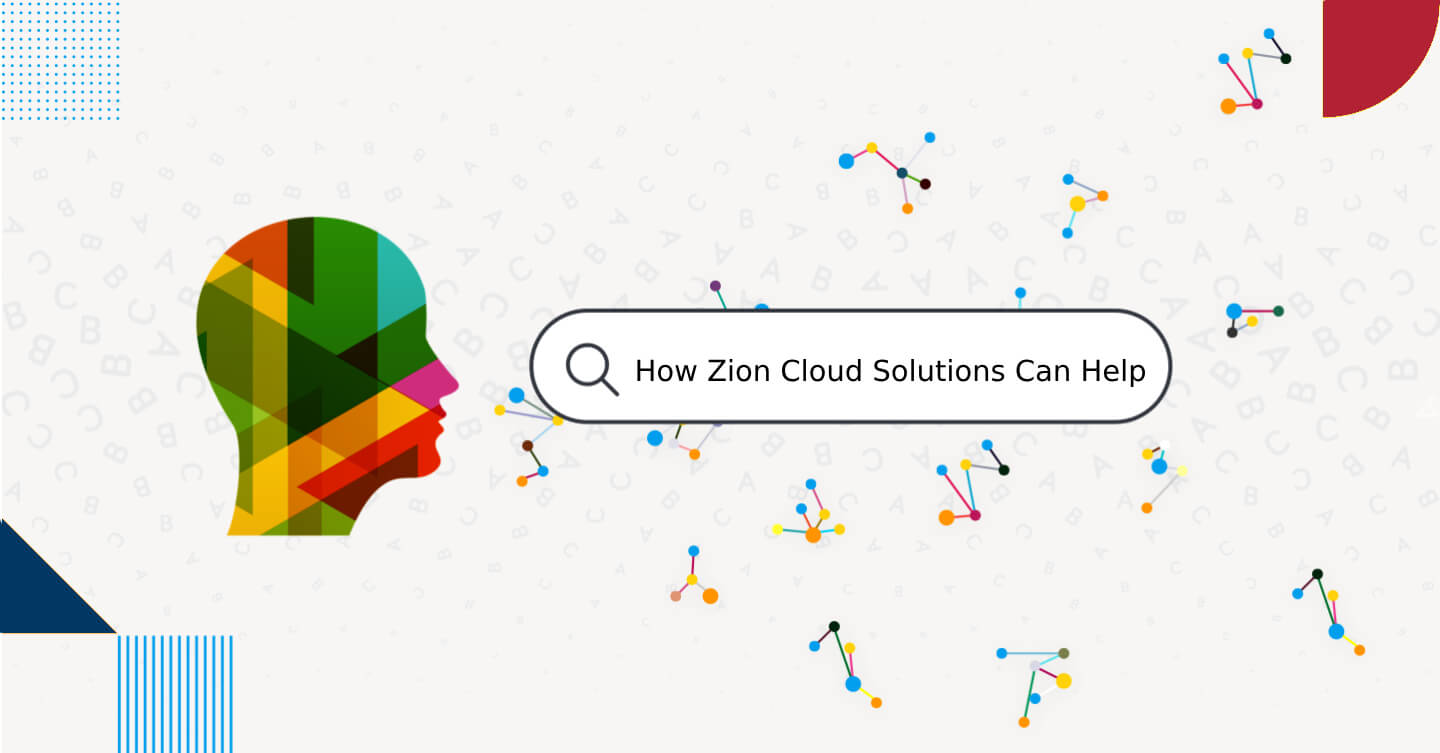
Unlocking Business Insights with Natural Language Querying: A Zion Cloud Solutions Approach
In today's fast-paced business environment, enterprises are drowning in data while starving for insights. Traditional business intelligence (BI) reports, while valuable, often remain static, complex, and time-consuming to decipher. Zion Cloud Solutions offers a transformative solution: leveraging Natural Language Querying (NLQ) to revolutionize how businesses interact with their data, ensuring they not only keep up but stay ahead.
Apr 19, 2024
Building Custom Retrieve-and-Generate Solutions with Zion Cloud Solutions
In the rapidly evolving landscape of artificial intelligence, Retrieve-and-Generate (RAG) solutions stand out for their ability to provide timely, relevant, and coherent responses by synthesizing information from large data sources.
Apr 08, 2024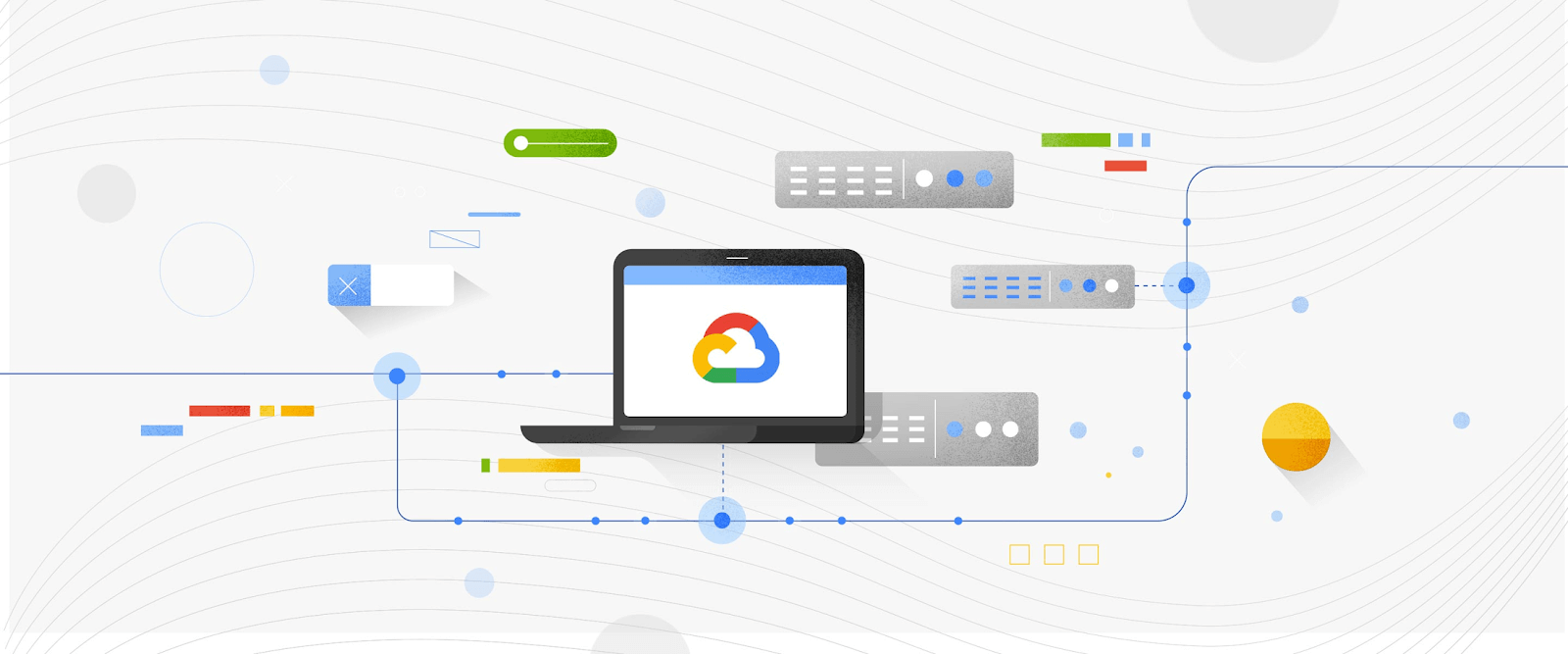
Revolutionizing Document Processing Across Businesses with Document AI
In the rapidly evolving digital landscape, the automation of document processing through Artificial Intelligence (AI) is transforming the way businesses of all sizes—small, medium, and large—manage contracts, invoices, legal documents, and more. This revolution, spearheaded by Document AI technologies, is not just about efficiency but also about unlocking new insights and opportunities that were previously buried in piles of paperwork.
Apr 03, 2024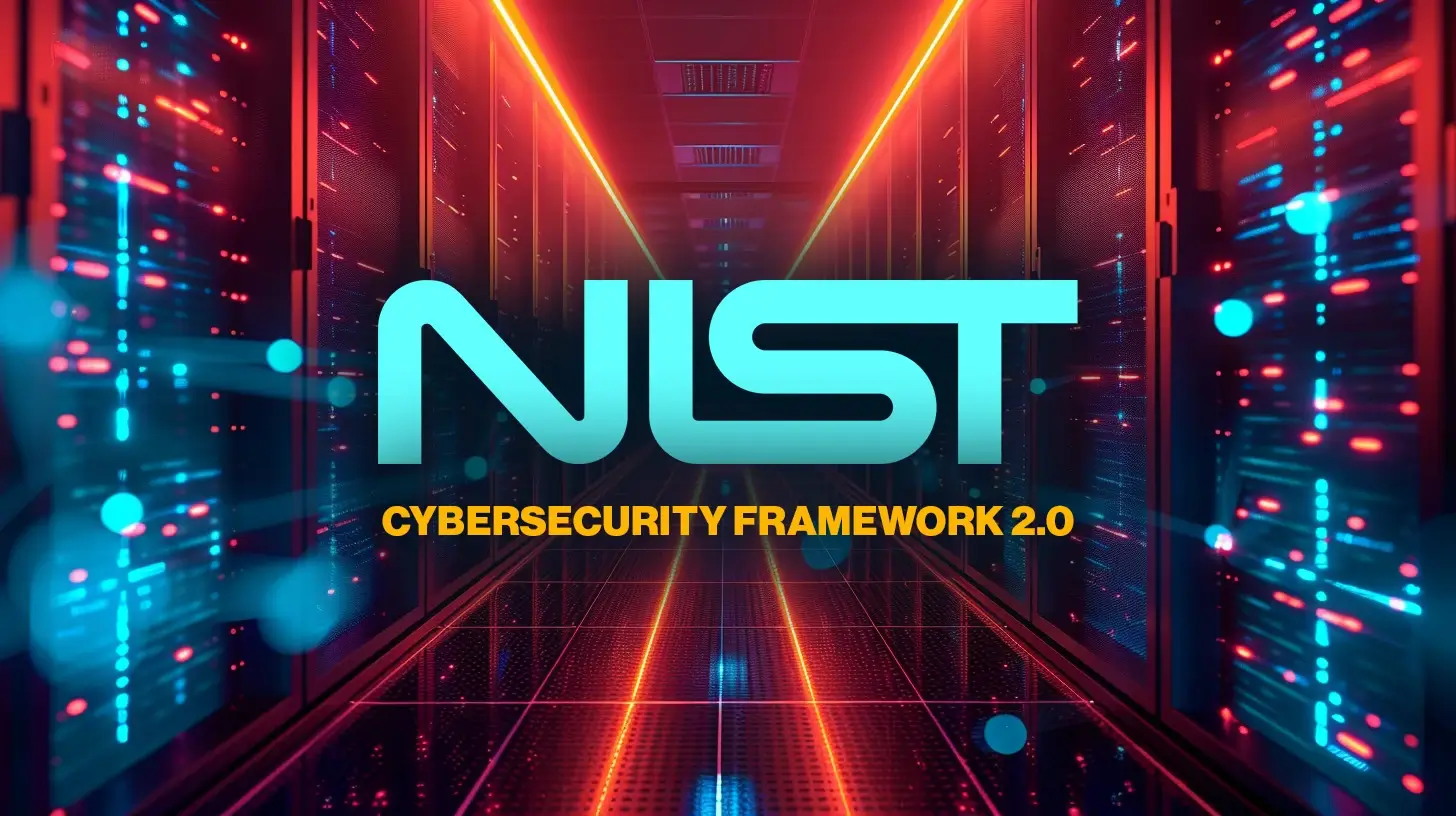
Embracing the Future: How Zion Cloud Solutions Aligns with NIST Cybersecurity Framework 2.0 for Enhanced Regulatory Compliance
NIST has recently released Version 2.0 of its Cybersecurity Framework, marking its first significant update since 2014. This version aims to support a broader range of organizations, emphasizing governance and supply chain security.
Mar 28, 2024
Modern O&M
In order to propel government agencies towards innovative, secure, and cost-effective mission outcomes, a comprehensive overhaul of Information Technology (IT) systems and infrastructure is imperative. Relying solely on a limited portion of the IT budget for modernization artificially constrains the government's capacity for digital transformation.
Feb 28, 2024
Building a Modern Case Management System with Microsoft Dynamics CRM
Microsoft Dynamics CRM offers a robust platform that can be tailored to develop a state-of-the-art CMS. This blog post will guide you through the key steps and considerations for leveraging Microsoft Dynamics CRM to build a modern CMS that meets your organizational needs and exceeds customer expectations.
Feb 28, 2024
Boost Your Coding Speed with GenAI Code Completion Tools
Developers today have access to incredibly powerful artificial intelligence (AI) tools that can boost productivity and allow them to write code faster. In this post, we'll look at some of the top GenAI autocomplete tools that are revolutionizing the way developers work. These tools use large language models trained on huge amounts of code to suggest likely completions as you type, reducing repetitive typing and cutting development time.
Nov 10, 2023
Leveraging Generative AI and Conversational AI for Elevated Customer Satisfaction
In an age of rapid technological advancements, customer expectations have never been higher. People demand quick, seamless, and personalized service whenever they interact with an organization. A customer's experience can make or break their loyalty, and businesses are constantly seeking innovative ways to enhance customer satisfaction and engagement.
Sep 01, 2023
The Imperative of a Security and Privacy-focused Culture in Organizations
In an era where digital footprints are expanding exponentially and cyber-attacks are becoming increasingly sophisticated, an organization's commitment to security and privacy is not just a matter of compliance—it's a cornerstone of trust. While firewalls, encrypted databases, and multi-factor authentication play pivotal roles, the human element remains the most susceptible to breaches. As such, cultivating a security and privacy-centric culture within organizations is paramount
Aug 10, 2023
Building a Data-as-a-Service (DaaS) Model: A Catalyst for Enhanced Customer Satisfaction and Business Growth
In today's digital age, data is the backbone of business success. However, effectively managing, analyzing, and leveraging this data can be challenging. This is where Data-as-a-Service (DaaS) comes into play. DaaS offers organizations the capability to access data on demand, much like how one would access electricity or water. But how does DaaS impact customer satisfaction and business growth? Let's delve deeper.
Aug 10, 2023
Unleashing the Power of Dynamics CRM: Revolutionizing Customer Relationship Management
Customer Relationship Management (CRM) is a critical aspect of any successful business. It involves managing and nurturing customer relationships to drive sales, deliver exceptional services, and ultimately achieve organizational growth. In today's competitive marketplace, companies need powerful tools to streamline their CRM efforts and stay ahead of the game. One such tool that has been causing waves in the industry is Microsoft Dynamics CRM.
Aug 10, 2023
Revolutionizing Software Testing: Unleashing the Power of Automation in Performance Testing
In the fast-paced world of software development, ensuring that applications perform flawlessly under varying workloads and user demands is crucial. Performance testing plays a vital role in guaranteeing the smooth functioning of software systems, but traditional methodologies often fall short in meeting the ever-increasing demands for speed, accuracy, and efficiency.
Aug 10, 2023
Implementing DevSecOps: A Holistic Approach to Ensuring Robust Security in Software Development
With the increasing dependency on technology and software systems, ensuring robust security in software development has become a paramount concern for organizations across industries. In order to address this challenge, a holistic approach known as DevSecOps has emerged, combining the principles of Development (Dev), Security (Sec), and Operations (Ops).
Aug 10, 2023
